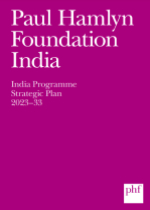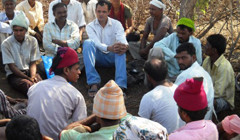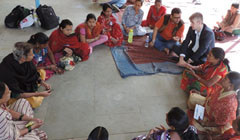Samaj Vikas Sanstha
Rs. 3,787,000 awarded over three years to Samaj Vikas Sanstha
Violence against women is common across India, and transcends region, caste, class and ethnic group. In areas that are backward and feudal, such as the Marathwada region of the western Indian state of Maharashtra, where child marriages are common and poverty is endemic, lower caste women are especially vulnerable.
The Foundation has funded Samaj Vikas Sanstha (SVS) over a three-year period to address this issue. Following a thorough analysis of the situation, comprising a review of the laws pertaining to women and their rights and a primary study in 75 villages, a detailed implementation strategy was developed. The main initiatives were the setting up of nari adalats (women’s courts) to quickly resolve pending cases, and four legal aid cells to support victims of violence and enable them to access the formal legal system. Volunteers were trained and assisted in identifying and encouraging women to question, challenge and shun violence.
The second phase has continued and through volunteers has been able to set up anti-harassment committees in 100 villages, federated at the block level. An additional focus has been the sensitisation and consequent involvement of government officials, the police department and members of gram panchayatsto prevent violence through community action.
The project challenges traditional caste and patriarchal arrangements and, as expected, has resulted in opposition from men who find it difficult to accept the change. However, the processes that have been set into motion have given women the confidence to continue to challenge tradition and yet gain support from men.
The achievements have been significant. Notably, almost 100 cases related to violence have been registered and the women’s courts have been able to resolve them to the satisfaction of both parties.
SVS has also begun publishing and distributing a monthly magazine calledAwaj Stree Astituvacha (Voice for women’s identity). It has a print run of over 2,000 and there have been eight editions published so far. The magazine is distributed in the programme villages, public health centres, children’s daycare centres and to all members of the anti-violence committee andpanchayats. The contents of the magazine include incidences of atrocities committed against women in the area, articles on women’s issues, women’s health, organisation of women and other relevant topics. The articles are mostly written by women who are members of the selfhelp groups and also the field coordinators of the organisation, teachers, journalists and students.
The project is ongoing and it is expected that by the time the project comes to a close, it will have created awareness on the issue of violence against women, legal and community systems to prevent it, and the momentum to sustain the action.


